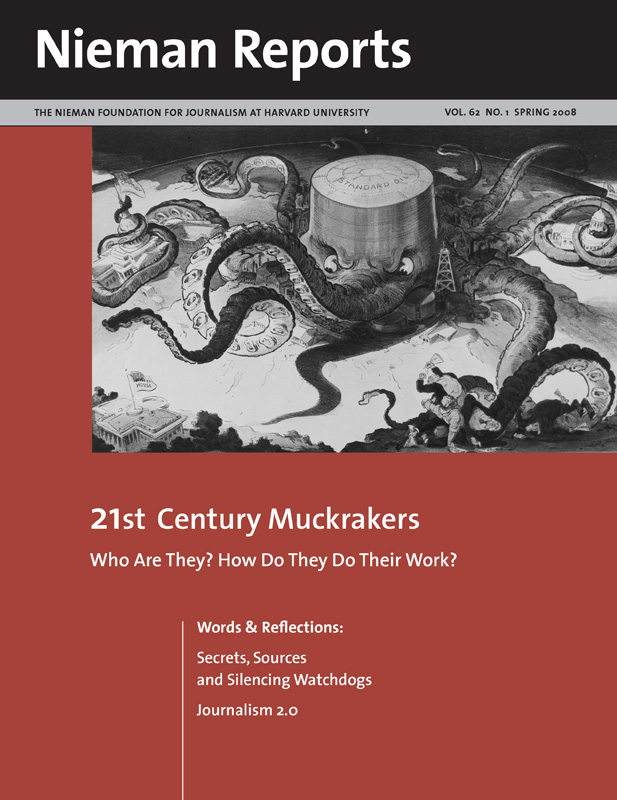In 1969, as the Vietnam War raged on, a dogged young reporter named Seymour Hersh thought he was onto something. He had learned that there might have been a massacre of Vietnamese civilians by U.S. soldiers in the village of My Lai. Knocking on one door after another, Hersh asked editors at mainstream news organizations to buy him a plane ticket so he could pursue this lead—and, if proven correct, this publication would be able to offer the story to its readers. One after another, they rejected his request.
Hersh then stumbled across a fledgling organization called the Fund for RELATED WEB LINK
“Fund for Investigative Journalism”
– fij.orgInvestigative Journalism. This fund had been established by Philip Stern, a progressive-minded philanthropist who had spent a lifetime trying to, in his words, “balance the scales of justice.” He’d done what he could to fund projects designed to alleviate poverty and others to battle against racism, corporate greed, and government corruption. Over time, he became convinced that by putting a small amount of money into the hands of aggressive reporters, he could do an immense amount of good toward achieving these goals.
RELATED ARTICLES
“Fund for Investigative Journalism: Practices and Policies”
– John Hyde
“Seeking Support for Investigative Projects”
– Compiled by Rachel Schaff For Hersh, that small amount of money—the first grant given out by the fund—was $250, which he used to pay for his reporting trip to Indiana. Hersh returned feeling certain that he had a story, so the fund gave him an additional grant of $2,000 to pursue it further. When he finished his reporting, the magazines to whom he offered the story turned him down. After a friend who operated Dispatch News Service, a small newspaper syndicate, agreed to run his piece, the scandal he’d unearthed became a huge and influential story when 36 newspapers in the United States and abroad bought the rights to reprint it. Hersh won the Pulitzer Prize for International Reporting in 1970, and public opinion about the Vietnam War was profoundly affected.
“Think of it,” Stern later wrote, “a mere $2,250 in fund grants enabled Seymour Hersh to leverage a whiff into a colossal stink and contribute mightily to the change in how Americans viewed the war in Vietnam.”
Courageous Pursuit of Stories
Since then, the work of investigative reporters who have received the fund’s grants has been recognized by the award of nearly every major prize in journalism: There has been another Pulitzer, two National Magazine Awards, the George Polk Award, the Raymond Clapper Award, and the Frank Luther Mott Award. There have also been plenty of other courageous reporters whose work we’ve funded who have not won prizes but who have endured harassment and imprisonment and risked their lives in pursuit of what they knew was an important story to tell.
Journalists who’ve headed out to do reporting we’ve funded have been beaten up, shot at, and run out of town. In 2001, Argwings Odera was forced to flee his native Kenya after the nation’s president went on national television and accused him of treason because of his stories about government corruption. Robert I. Friedman, a freelance author, was sent into hiding after his book, “Red Mafiya,” earned him a death sentence from the Russian mob. After he received a subsequent fund grant to investigate human trafficking in India, he contracted a rare disease during his time there and died. In honor of his work, the fund created the Robert I. Friedman Award for International Investigative Reporting to honor him. Eliza Griswold, who was the first winner of the Friedman Award, was detained and subsequently ushered out of Pakistan while she was reporting on Waziristan, a remote tribal area thought to be the hiding place of Osama bin Laden.
There was Lesley McCulloch, a Scottish journalist, who was arrested and jailed for five months while reporting on the conflict in Banda Aceh. The Indonesian government originally threatened to charge her with treason, a capital offense, but later backed away when international opinion coalesced in her favor. Unknown to her jailers, McCulloch had smuggled a cell phone into her cell and gave a series of interviews to the BBC.
Our annual book award is named in honor of legendary editor Gene Roberts, a longtime member of the board of directors whose idea led to this $25,000 award. It gives authors who are writing investigative books financial assistance during times when it can be a struggle for them to complete their projects. Our most recent recipient was Jessica Snyder Sachs, a science journalist whose book, “Good Germs, Bad Germs: Health and Survival in a Bacterial World,” details how the “war on germs” threatens a massive public health crisis as microbes become resistant to antibiotic drugs. [See author’s note.]
Many years after the My Lai massacre story made him famous, Seymour Hersh looked back on the important role the fund plays. The support it provides, he said, “is absolutely essential for nonestablishment journalists working on stories that—believe me, I know—99 percent of managing editors would have passed up.”
AUTHOR’S NOTE
Previous winners include Stephanie Mencimer for “Blocking the Courthouse Door: How the Republican Party and Its Corporate Allies Are Taking Away Your Right to Sue,” about tort reform, and “Vows of Silence: The Abuse of Power in the Papacy of John Paul II,” by Jason Berry and Gerald Renner, which details sexual misconduct by a secretive sect within the Catholic Church and an effort to cover it up at the Vatican’s higher levels.
John Hyde is the part-time executive director of the Fund for Investigative Journalism. He has been a reporter and editor for several newspapers, including the Des Moines Register, where he served in the Washington bureau for 12 years.


